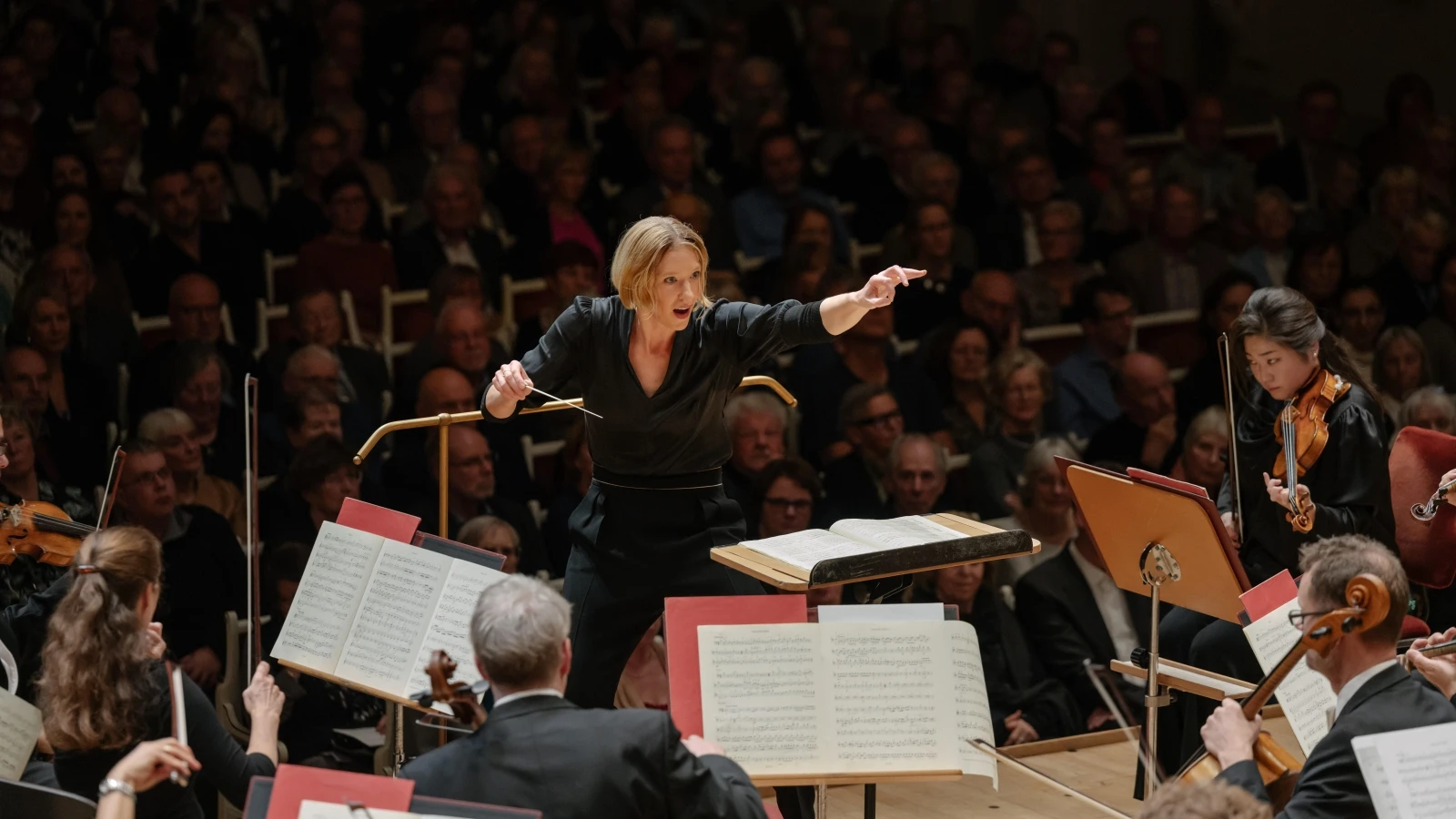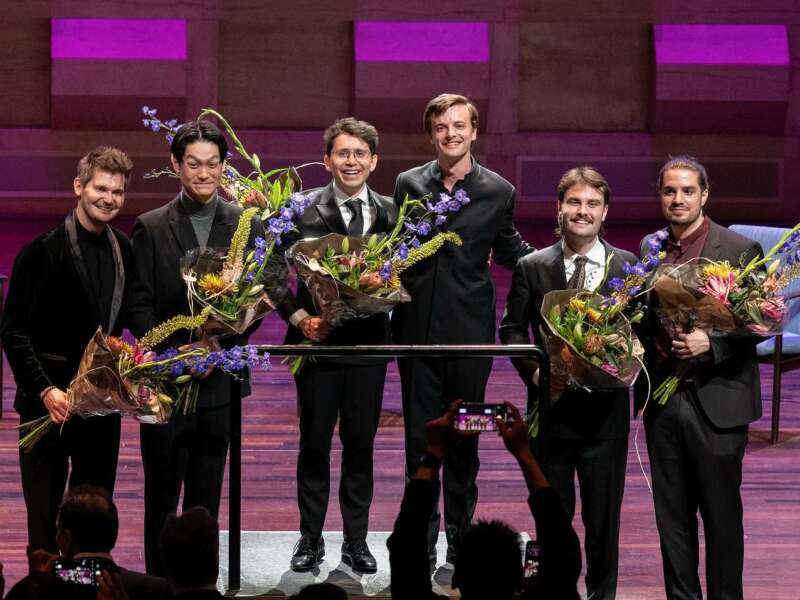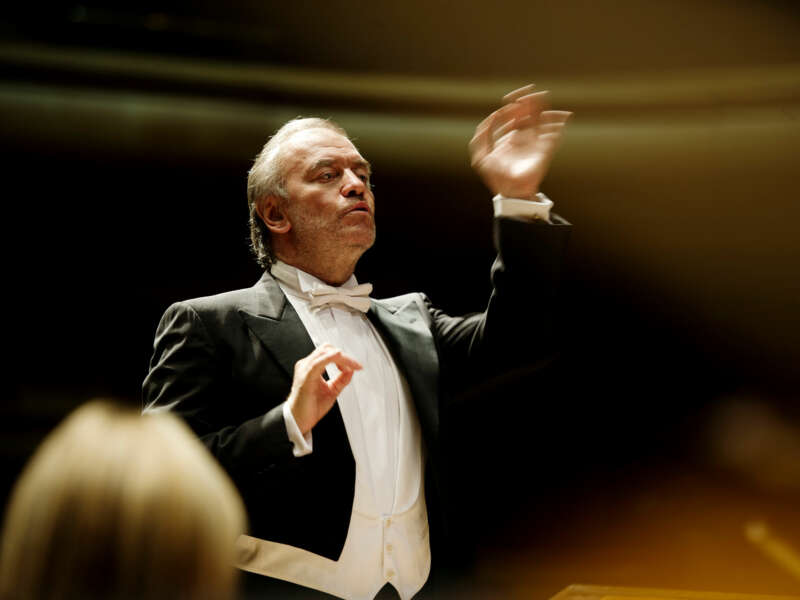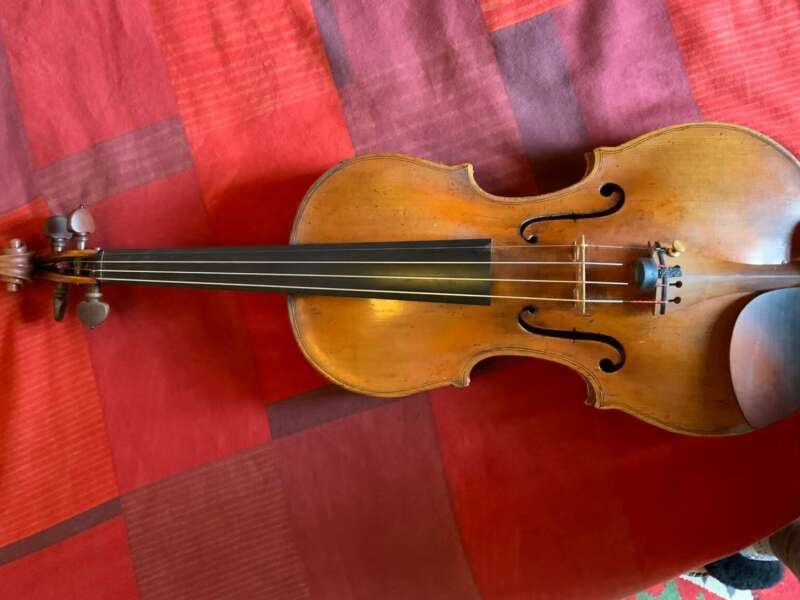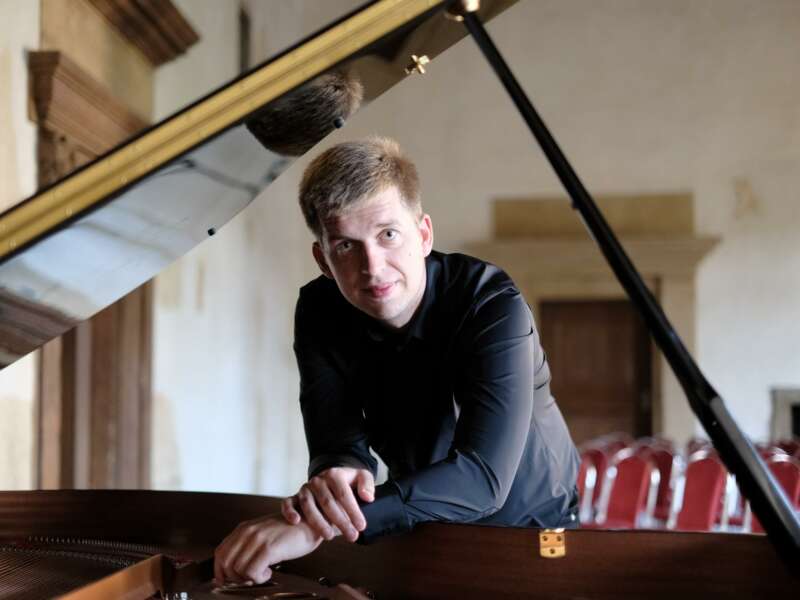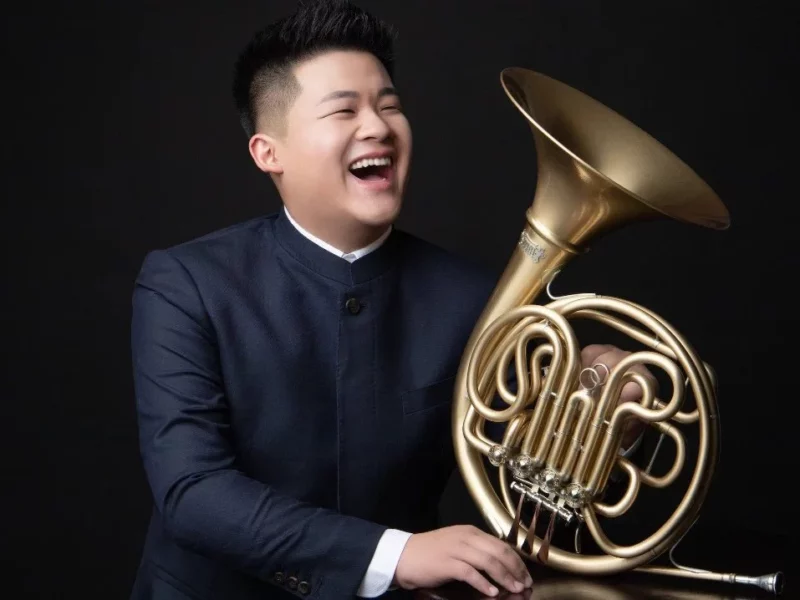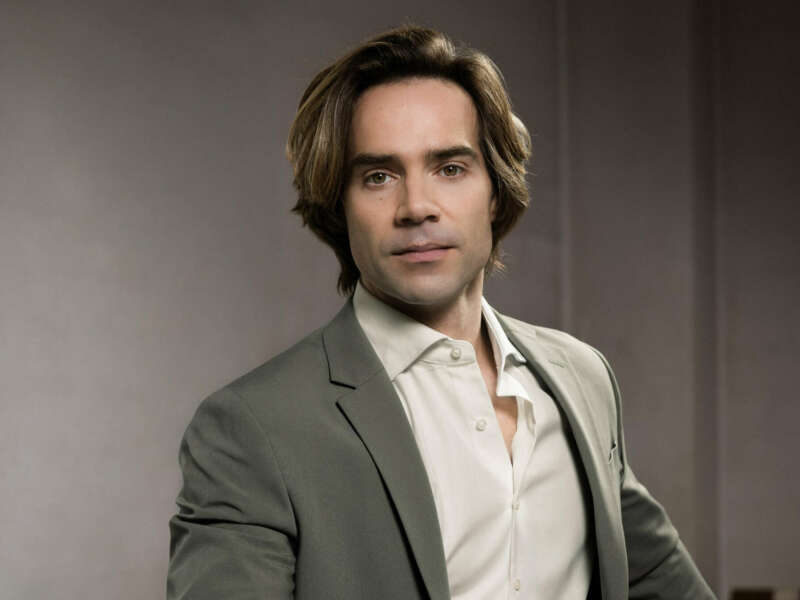Bachtrack’s Statistics Reveal 2024 Trends in Classical Music
According to data collated by Bachtrack, last year saw more than 30,000 concert, opera, and dance performances around the world
To map the trajectory of music and the arts worldwide, the classical music platform Bachtrack annually uses its database to gather statistics and indicate trends on how the music sector is evolving.
Based on its 2024 findings from orchestras, opera houses, and concert venues, Bachtrack listed 30,774 performances given in 48 countries across the world throughout 2024.
The Romantic genre was the most frequently performed in concert music and in opera, which respectively clocked 41.53% and 57.89% in performances amid other genres.
Among the trends noted over the past decade include an uptick in the number of women conductors and composers, and increased programming of music written by living composers.
Women conductors including Joana Mallwitz, Nathalie Stutzmann, Simone Young, Kristiina Poska, and Marie Jacquot have received increased engagements from orchestras, as have many early-career female conductors.
However, Bachtrack added that women conductors are still greatly outnumbered by their male counterparts. Out of all the concerts listed in Bachtrack’s database, 13% were conducted by women, and of the top 50 busiest conductors, five are women (13 are in the top 100), but none are present in the top 20 busiest conductors.
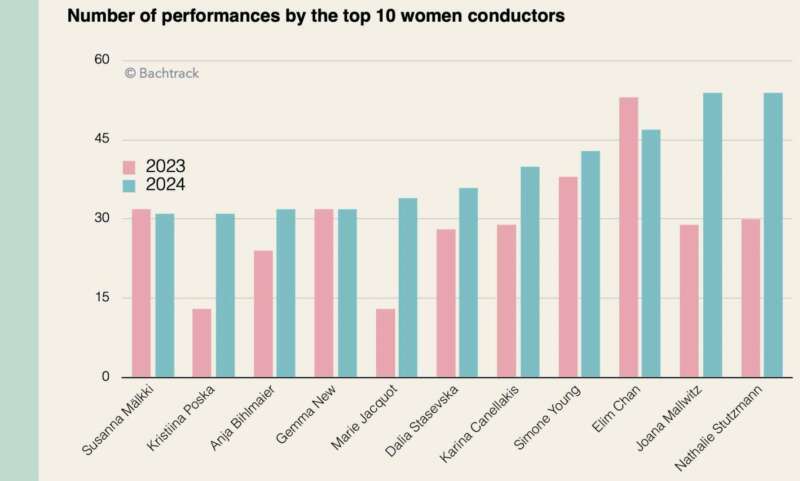
(Image courtesy: Bachtrack)
Additionally, with at least 10 engagements listed in 2024, women comprised 26% of concert pianists, 21% of concert cellists, and 45% of concert violinists.
The two busiest violinists listed are Augustin Hadelich and Renaud Capuçon, who performed 17 and 15 different concertante works this season, respectively. Among solo cellists, Anastasia Kobekina, Sol Gabetta, and Alisa Weilerstein all performed at least nine different concertos, (Weilerstein performed two world premieres).
In orchestras, the Toronto Symphony Orchestra has risen by ten places since 2023 to become the busiest orchestra in 2024. Additionally, conductor Klaus Mäkelä made the top of the list with 113 concert engagements listed in 2024.
While John Williams and Arvo Pärt remained the most frequently performed living composers, Caroline Shaw became the fourth most frequently performed living composer — her work Entr’acte saw 30 performances across the year. Additionally, works by the late Kaija Saariaho saw 96 listed performances — the most in Bachtrack’s database to date.
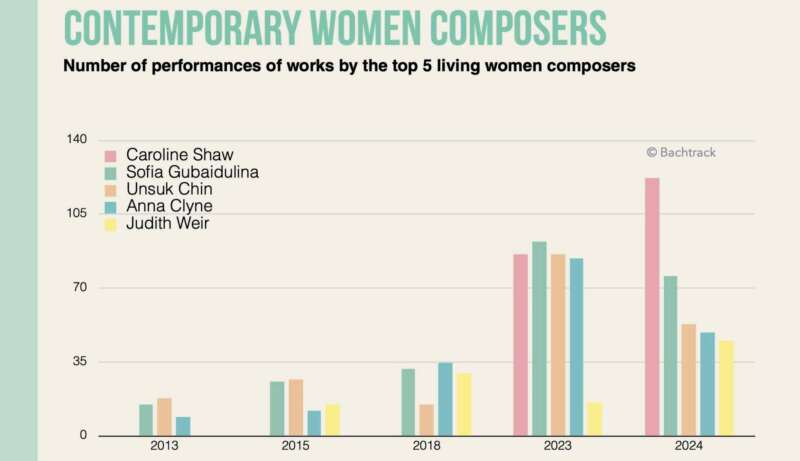
(Image courtesy: Bachtrack)
In dance, Christopher Wheeldon’s Alice’s Adventures in Wonderland entered the top 10 most-performed ballets for the first time. Since its premiere in 2011, this ballet has since been taken on by at least seven other international ballet companies.
Further, Tchaikovsky’s The Nutcracker maintains its status as the most performed ballet worldwide with around 400 more performances than the next most popular ballet, Swan Lake. However, The Nutcracker is also seeing an 11% decrease as companies have scheduled Cinderella, A Christmas Carol, or The Snow Queen as alternatives for the holiday season.
Last year also saw many anniversaries, including those of Bruckner, Smetana, Fauré, and Schoenberg. In France, the UK, and the U.S., concerts with Fauré’s music increased by over 300%.
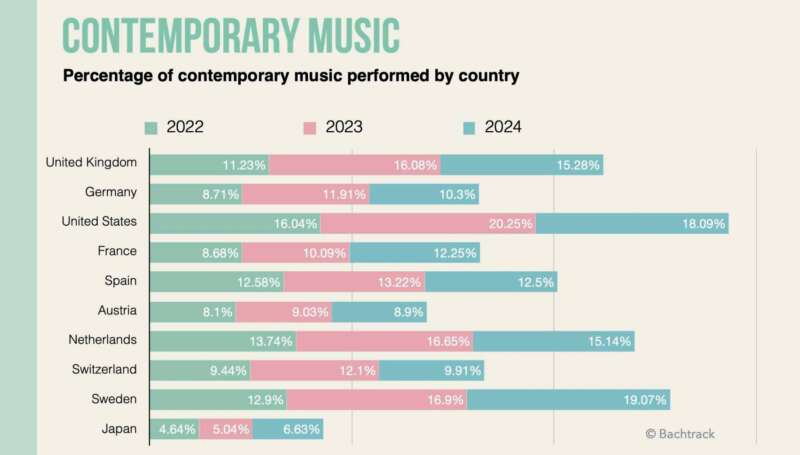
(Image courtesy: Bachtrack)
Both Bruckner and Smetana celebrated their 200th anniversaries last year, with the latter coinciding with the 2024 Year of Czech Music. Smetana’s operas saw an almost twofold increase in concerts.
Additionally, Stravinsky’s operas saw 92 listed performances — an increase of around 350% on the previous year — and Dvořák’s Symphony No. 9 “From the New World” was 2024’s most performed work. Janáček’s operas also saw an uptick.
The centenary of Puccini’s death saw his operas feature in over 1,204 listed performances. As for Schoenberg’s 150th anniversary, his works saw a 252% increase in the concert hall, and 58 of his operas were performed.
“What our statistics don’t capture is how seasons have been planned — decisions already made, or being made at this instant,” Bachtrack explained. “We recognise talent wherever we see it,” they continued. “But we also think that arts organisations, together with governments, have a duty to maintain an active role in the health of the arts themselves. As to the future of the performing arts, things remain very much in the balance.”
june 2025
july 2025


